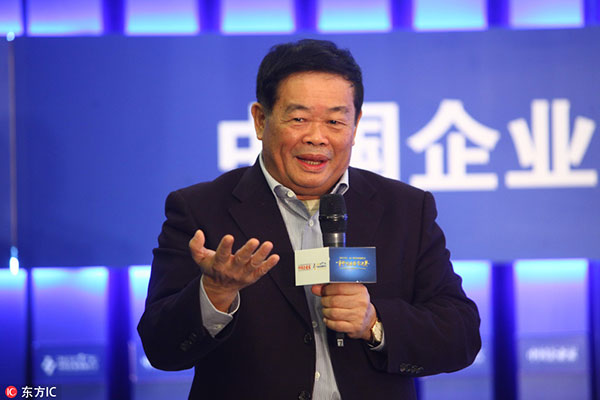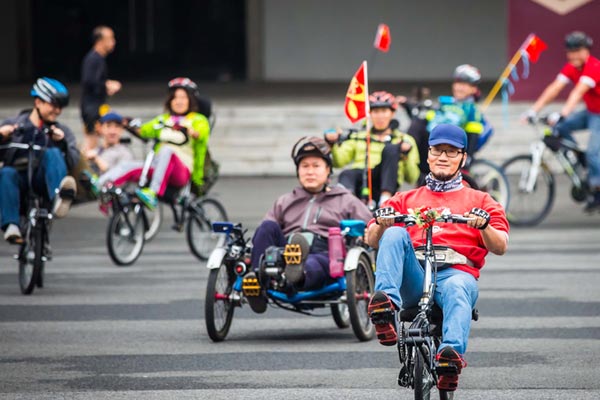Higher taxes hit only 1.5% of firms
 |
|
Cao Dewang, chairman of Fuyao Group, speaks during a conference of the 11th China Entrepreneur Summit 2012 in Beijing, China, Dec 8 2012.[Photo/IC] |
"VAT reform has brought significant benefits to enterprises across sectors," said Wang Lujin, chief accountant of the State Administration of Taxation. "It is absolutely acceptable to see 1.5 percent among millions of taxpayers experience higher taxes at the time when we have a long way to go to refine the VAT taxation system."
The comments follow spirited discussions online by commenters, many of whom called China's business tax rate "deadly".
Comments by auto glass tycoon Cao Dewang, who has set up a factory in the United States, have fed the national discussion over taxation rates.
Cao, head of Fuyao Group, said the overall tax cost for manufacturers in China is 35 percent higher than in the US. His comments have prompted concerns that more Chinese manufacturers would move production lines overseas.
Li Wanfu, director of the Taxation Science Institute under the administration, denied such speculation and said it does not make sense to blame the taxation system for a single company's decision to open a US factory.
Data from the administration shows that by the end of November, the tax burden of 106.9 million corporate taxpayers engaged in the last four sectors of this round of VAT reform, has been reduced by 110.5 billion yuan ($15.9 billion), a reduction of 14.7 percent compared with the same period last year.
VAT reform, launched in 2012, which aims to replace standard business income taxes with VAT, has finally spread to the four sectors-construction, real estate, finance and consumer services.
VAT is a consumption tax placed on a product whenever value is added at a stage of production and at final sale, according to Investopedia.
Li added, "Although US president-elect Donald Trump pledged to cut taxes in an effort to lure firms back to his home country, it is so far unclear whether he will cut tax to the extent he pledged after he assumes office." He said the US government would face problems paying for "future infrastructure construction" if taxes are slashed too much.
Complaints alleging a high tax burden in China arise from many firms failing to get invoices for tax refunds, either because of a lack of knowledge or tax evasion issues, Li said.
Li said the reform would have a long-term positive effect because companies need to get invoices at every link along the production chain.
"Companies would have more incentive to pay tax in accordance with the law in order to get a tax rebate," he said, citing the example of Haidilao Hot Pot.
Chen Yong, the company's taxation chief, has said it got a 45 percent tax cut in three months by incorporating every step, from food purchases to delivery services.























